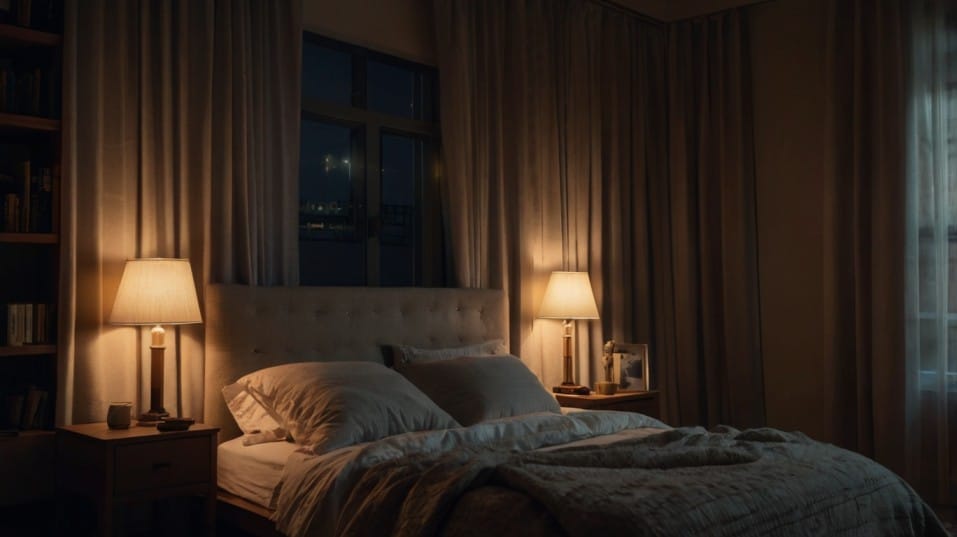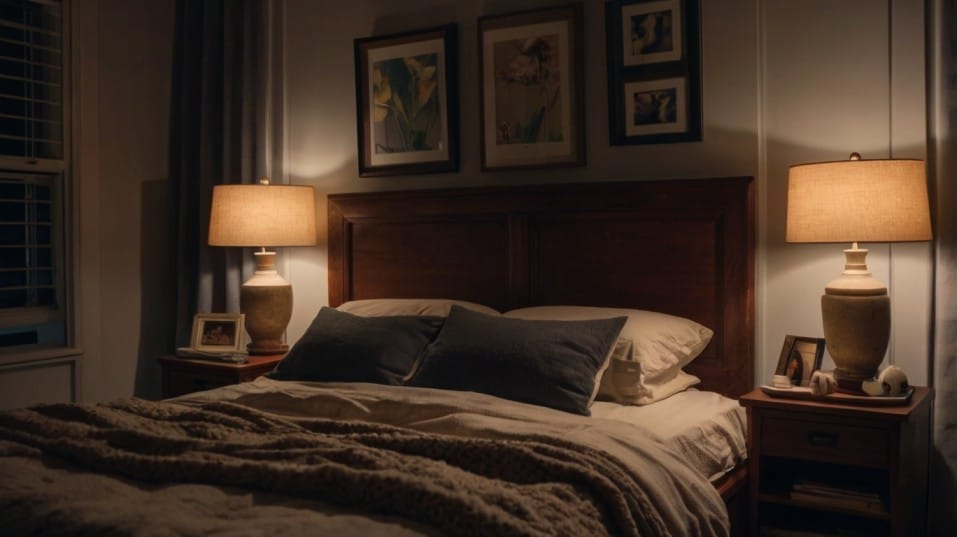Why You Shouldn’t Sleep With the TV On
Falling asleep with the TV on ruins deep sleep. Learn the simple shift that helps you wake up sharper, calmer, and more refreshed tomorrow.

Ever wonder why you still wake up tired—even after a full night's sleep? One sneaky culprit could be the TV you fall asleep to.
While it might feel like a harmless habit, those late-night shows are quietly hijacking your brain’s ability to power down.
If you're serious about sharper focus, better recovery, and real rest, it's time to rethink the background noise. The fix is simpler than you think—and the payoff starts fast.
The TV Doesn’t Let Your Brain Power Down
Here’s what’s really happening when you doze off with the TV murmuring in the background: your brain doesn’t actually turn off.
Even when your eyes are shut and your body feels still, your brain is busy decoding every shift in sound, light, and language.
That’s not speculation—it’s been backed up by sleep researchers using EEG scans. They’ve found that auditory stimuli, especially speech, keeps your brain partially activated through the night.
Your sleep becomes fragmented. You might not fully wake up, but your brain keeps surfacing from deeper stages into lighter ones. You never get fully immersed in that deep, physically and mentally restorative state your body desperately needs.
If you’ve ever woken up feeling like you “slept” but didn’t feel rested—this is likely why.

Light at Night Scrambles Your Internal Clock
You already know blue light from your phone messes with melatonin. But your TV is an even stronger source.
Bigger screen, more brightness, and usually watched from across the room—so you tend to crank up the volume and leave the visuals blaring.
Your brain is extremely sensitive to light in the evening. It evolved to wind down with the sunset, not stay alert through artificial brightness at 11 p.m.
That blue-spectrum light tells your brain it’s daytime, delaying melatonin release and messing with your circadian rhythm.
That’s why people who fall asleep with the TV on often don’t feel tired until the screen is on. You’ve trained your brain to associate light and noise with rest, which is backwards.
That habit keeps you locked in a cycle where falling asleep without stimulation feels impossible—when in reality, you’ve just desensitized yourself to what real rest feels like.
Resetting that rhythm takes a few nights. Once your brain re-learns how to recognize actual darkness and silence as sleep cues, you’ll find yourself falling asleep faster—without needing background noise to get there.
Random Sound Interrupts Deep Sleep More Than You Think
There’s a difference between steady ambient noise—like a fan or white noise—and the unpredictable audio from a TV show.
Your brain treats random changes in pitch, tone, or volume as potential threats. You might not consciously notice the punchline, explosion, or musical swell, but your brain does. And it reacts.
Even subtle fluctuations can activate the amygdala, the part of your brain that responds to danger. That activity pulls you into lighter stages of sleep, or wakes you briefly.
These micro-arousals, even if you don’t fully remember them, chip away at the quality of your rest. You’re stuck in a state where your sleep is more shallow, your REM cycles are shortened, and your overall recovery is compromised.
And no, using the sleep timer doesn’t solve this. Falling asleep during TV watching still teaches your body that noise equals rest. Your brain forms habits even in the unconscious phase—especially if they’re repeated nightly.
Your Sleep Routine Sets the Tone for Your Whole Day
The TV might feel like a wind-down tool, but it’s really a distraction. It masks fatigue without actually supporting your transition into sleep. The better strategy is to build a routine that tells your brain: now it’s time to rest.
Create a Routine That Calms, Not Stimulates
That could mean reading a few pages of a physical book, turning on a low amber lamp, or practicing simple breathing exercises. The key is consistency.
Give your brain the same inputs every night and it’ll respond faster over time. Within a few days, your sleep latency (the time it takes to fall asleep) will drop. Within a week or two, you’ll notice clearer mornings.
Sleep isn't just a passive break. It’s your body’s most powerful repair cycle. Muscle tissue rebuilds, brain fog lifts, and hormone levels rebalance.
But only if you’re getting the full progression of sleep stages—especially deep sleep and REM. Falling asleep to dialogue and flashing screens drags you away from those.
You don’t have to create a perfect sleep environment overnight. Just start by removing the biggest disruptor—the TV—and giving your brain a chance to adjust.
Sleep Quality Impacts Everything You Do
Better sleep isn’t just about feeling rested. It sharpens your focus, boosts your memory, and improves emotional regulation.
You recover faster from workouts. You’re more resilient to stress. Your immune system works better. All of these benefits compound when you sleep well—not just long.
The TV habit steals those gains quietly. It keeps your nervous system slightly activated. It delays recovery. It lowers your sleep efficiency, even if you’re in bed for 8 hours.
Once you replace it with something designed to calm, not stimulate, the difference shows up quickly.
You’ll wake up more alert, reach for less caffeine, and feel more in control of your day—not because you changed everything, but because you changed one thing that mattered.
Final Thoughts
If you’re just starting to build smarter sleep habits, cutting out the TV at night is a simple, high-impact move. No tech tweaks. No supplements. Just you, your brain, and a return to calm.
This isn’t about being rigid. It’s about creating space for real recovery. The kind that fuels energy, focus, and performance the next day.
So here’s the move: tonight, shut off the screen. Replace it with a ritual that actually promotes rest—dim light, quiet, stillness.
Your body will take the hint, and the benefits will start stacking up fast. Start now. Better sleep begins when the noise ends.




